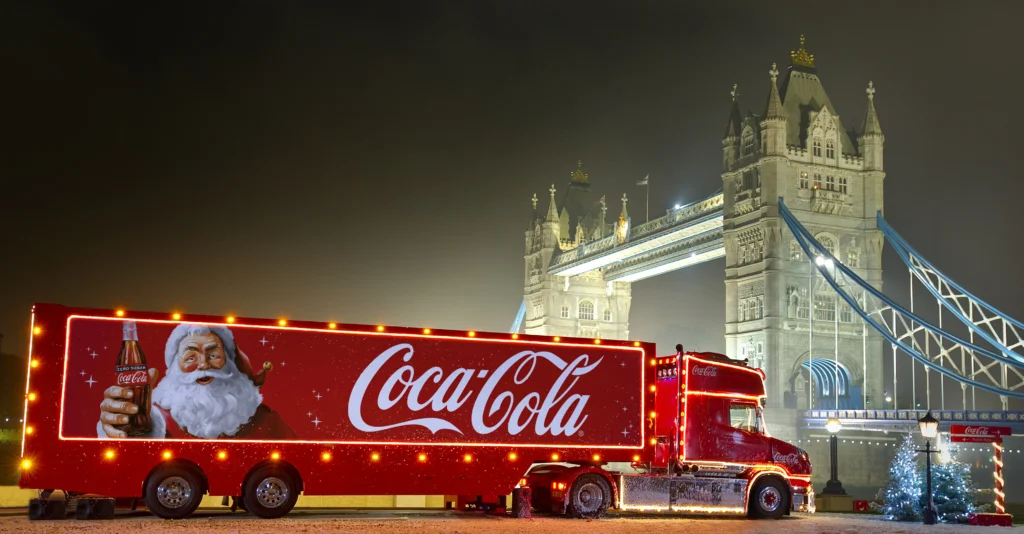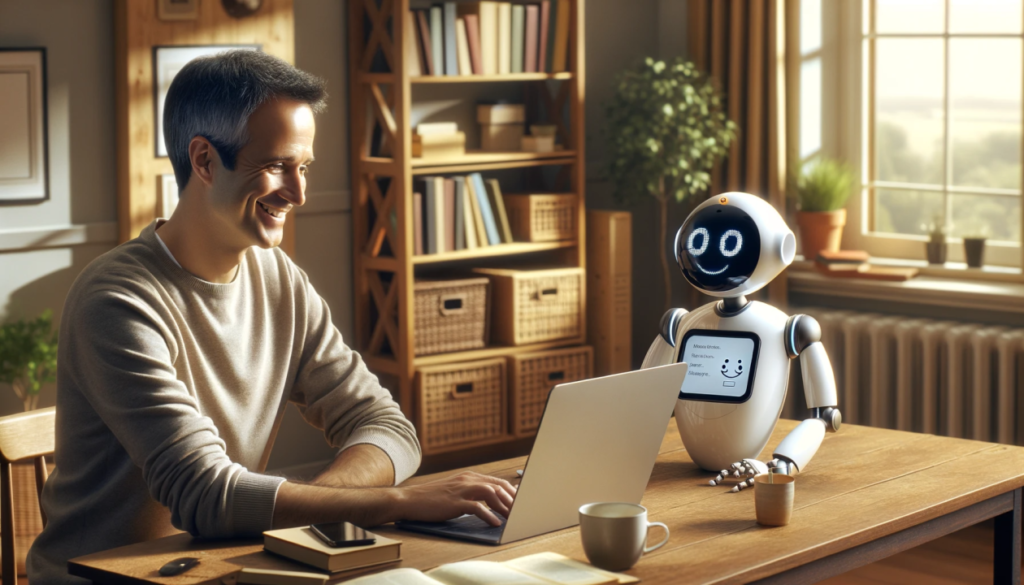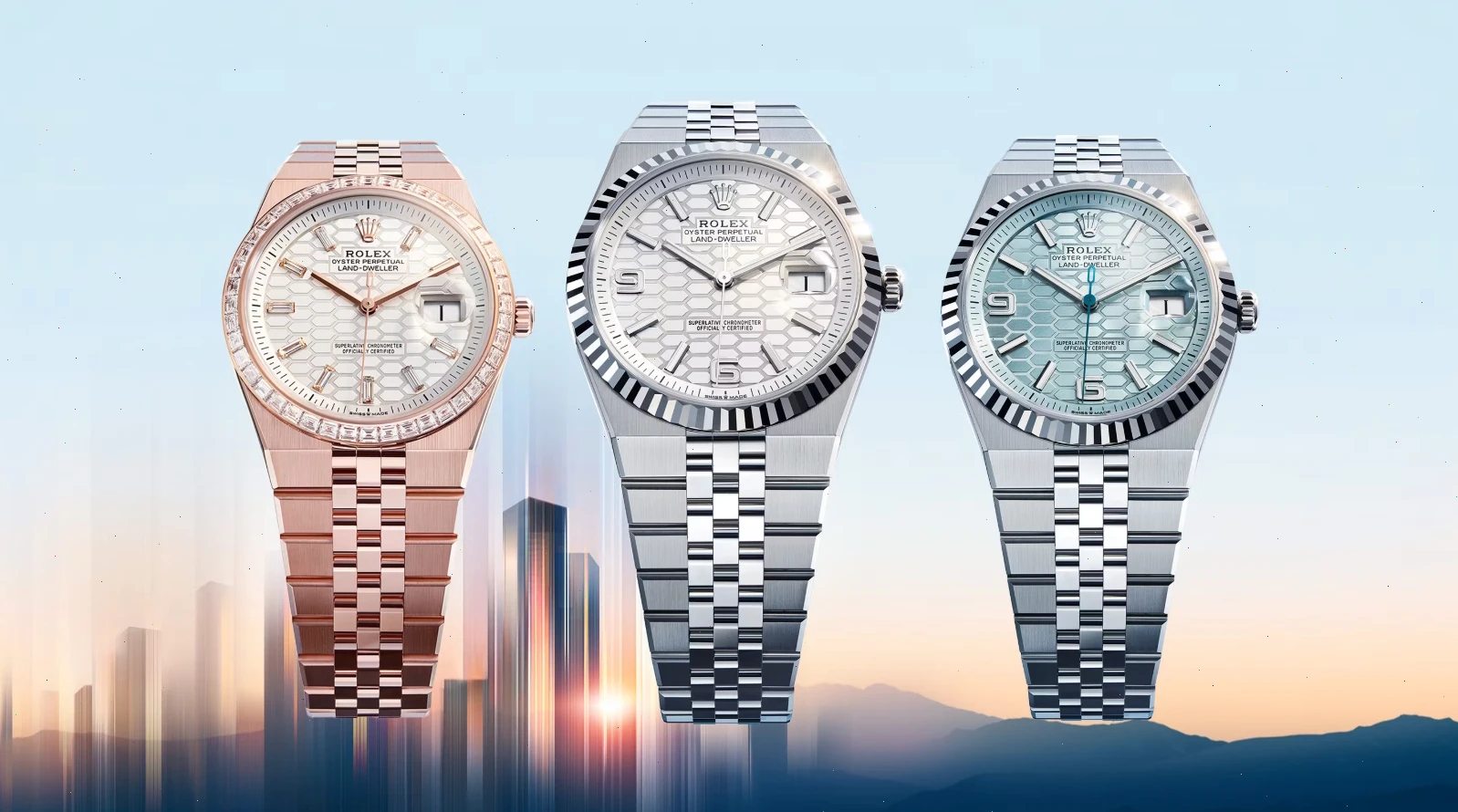Outcry ensued after the brand remade its classic Christmas ad with generative AI, signaling a wider industry dilemma.
Initially, Coca-Cola’s AI-powered remake of its 1995 commercial, “Holidays Are Coming,” seemed to be well received.
System1, which tests emotional responses to ads, found an “overwhelmingly positive” consumer response to the AI-generated campaign, according to svp of partnerships Andrew Tindall. The ad received a perfect 5.9 score from System1 in both the U.S. and U.K.
But soon after, sentiment began to turn, and Coca-Cola this week found itself the latest brand subject to backlash for using AI. Critics claimed that AI sucked the warmth and joy out of a holiday classic, and represented a larger threat to the creative community. One TikTok user went so far as to say that Coke ruined Christmas.
Tindall said that outcry over the ad is a result of “people post-rationalizing an opinion on social media,” but “that’s not how we choose brands. We choose them in split seconds based on memories built by emotions. Your ad’s success relies on how it makes the millions feel during their day-to-day lives.”
In other words, beyond the heat of social media, many people experiencing the ad in the wild might not even realize it’s made by AI.
Coca-Cola’s long-running campaign, featuring its red Christmas Trucks, is seen as a pillar of the festive season, and it’s notoriously hard to pull off a reboot of a beloved classic. But the controversy surrounding Coke’s AI remake reveals a bigger schism between the ad industry and consumers. While marketers face pressure to keep pace with innovation, many have yet to reconcile AI hype with people’s discomfort about its implications.

“AI in particular plays into a human fear. In the same way that all humans are scared of sharks, they’re scared of AI and machines taking over the world,” David Jones, founder and CEO of The Brandtech Group, told ADWEEK. “If a big, high-profile advertiser like Coca-Cola starts using AI in one of its most iconic campaigns, then it’s a real threat to those people concerned about the AI future. It just multiplies and accentuates those fears.”
Advertising’s AI Dilemma: Balancing Innovation And Emotional Connection
It’s been two years since generative AI entered the mainstream, with OpenAI launching ChatGPT in November 2022. Since then, AI has been a major fixation of the ad industry and beyond. Industry leaders, like WPP CEO Mark Read and Publicis Groupe CEO Arthur Sadoun, say AI is the future of their businesses, while some in the creative community worry it will kill their jobs.
This tension has persisted as brands have increasingly experimented with the technology in their marketing – to mixed results. In 2024 alone, advertisers including Google, Under Armour, Toys R Us, and Lego have faced backlash for campaigns that depicted or used generative AI.
Coca-Cola’s current controversy has parallels with Apple’s “Crush” ad, which showed a hydraulic press crushing artistic objects like musical instruments, paint cans, and a camera, before lifting to reveal the AI-powered iPad Pro. Amid the outcry, critics like actor Hugh Grant bemoaned that Apple’s ad represented “the destruction of the human experience.”
Both the Apple and Coca-Cola ads tapped into people’s perception that “automation [means] a loss of human connection,” said Kim Lawrie, head of technology at The Beyond Collective. “While [AI] is a great tool for so much, using it like this risks tarnishing the Coca-Cola brand.”
Coca-Cola’s use of AI also fell flat because it appeared to some less like true innovation and more like bland box-ticking of a trend, said Ramy Dance, founder and managing partner of Common People Films, who added: “The focus should be on great creative ideas, not on functionality for its sake.”
Skeptics like Alex Grant, founder and CEO of agency We Are Pi, believe Coca-Cola’s ad was only a “stunt” to grab the attention of other marketers and investors. Others say the emphasis was too heavily on the technology, rather than on the human makers who also worked on the ad.
“Is it a lifeless and soulless piece of advertising because of the limitations of AI, or is it lifeless and soulless because the humans who commissioned and executed it brought no originality of thought or execution to the AI tools?” questioned Nicholas Hulley, chief creative officer of AMV BBDO. “Hopefully it is proof that you don’t look to the tool for originality of thought or craft – you look to people.”
A spokesperson from Coca-Cola, which also used AI in last year’s holiday campaign, emphasized that its latest effort didn’t totally supersede human creativity.
“This year’s films were made through a collaboration of human storytellers and the power of generative AI,” the spokesperson said. “Coca-Cola will always remain dedicated to creating the highest level of work at the intersection of human creativity and technology.”
The Future Of Creativity: Human Ingenuity And AI Innovation

So far, AI’s role in creative projects has been overhyped, and only a small fraction of content is created with gen AI, Jones said. As the technology develops, people will grow more “comfortable with the idea of creative being made by AI and machines,” he continued. “We’ll see the greatest creative revolution in history.”
Facing this revolution, advertising creatives also need to evolve their perspectives and “move away from the narrative that AI is some creativity thief lurking in the shadows,” said Charles Crotty, managing partner, media at Digitas U.K.
The founders of Pereira O’Dell’s Silverside AI, one of the studios that developed Coca-Cola’s holiday campaign, say AI enhanced, not harmed, their creative process.
“No matter how the technology grows, no work will be 100% done with AI. At some level, as with any tool, it will need human input and intervention,” said PJ Pereira, co-founder and partner at Silverside and co-founder and creative chairman of Pereira O’Dell. “We need to start at some point and learn collectively, otherwise it can never improve – either in its output or in its efficiency. This is a new kind of craft and we are in the very beginning of it.”
If Coca-Cola’s AI holiday remake didn’t fully capture the emotional warmth of the original, “that wasn’t the point,” said Craig Elimeliah, chief creative officer of agency Code and Theory.
“Coke used AI to signal its belief in the future of creativity, showing how the technology can scale storytelling in entirely different ways,” he said. “Coke wasn’t aiming for ‘perfect.’ They showed us what’s next, and invited the industry to define it.”





